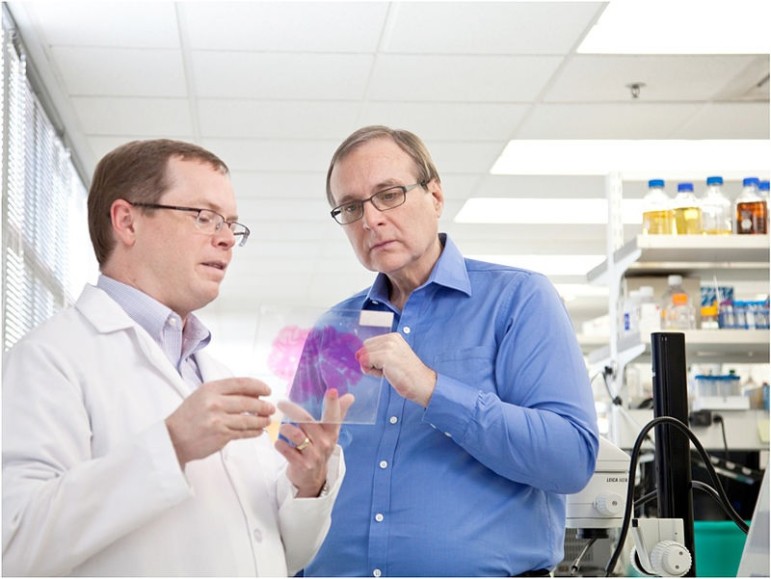
November 2, 2015; New York Times
As co-founder of Microsoft, Paul Allen may be best known as sidekick to Bill Gates, but he’s much, much more. As one of history’s richest men, he has spent a great deal of his post-Microsoft life as a generous philanthropist.
Allen has allocated much of his giving, which so far exceeds $2 billion of a $17 billion fortune, to his hometown of Seattle. His interests are diverse, including creating museums devoted to rock music and vintage computers, as well as building institutes devoted to learning about the human cell, brains, and artificial intelligence. In 2010, Allen announced that the majority of his estate would be left to philanthropic causes, with an emphasis on funding not-for-profit scientific research. His announcement came about as a result of the “Giving Pledge” campaign launched by Bill Gates and Warren Buffett, urging America’s richest individuals to commit half of their fortunes to charitable causes.
According to New York Times writer Quentin Hardy:
Most of history’s richest givers have mined their lives, looking for the most effective ways to donate money….Industrialists created a kind of industrial philanthropy, creating durable institutions and seeking a kind of mass-scale moral betterment akin to a factory output of better people. In our age of software-based technological disruption, digital billionaires look for breakthroughs that will transform society and reward individual creativity.
Sign up for our free newsletters
Subscribe to NPQ's newsletters to have our top stories delivered directly to your inbox.
By signing up, you agree to our privacy policy and terms of use, and to receive messages from NPQ and our partners.
Allen’s announcement coincided with the 20th anniversary of his own family foundation. He explained, “I want to announce that my philanthropic efforts will continue after my lifetime. I’ve planned for many years now that the majority of my estate will be left to philanthropy to continue the work of the Foundation and to fund non-profit scientific research…It always comes back to what you are passionate about…(through philanthropy), you are transmitting your hopes, and keeping them going in the future.”
According to Karl Zinsmeister, author of The Almanac of American Philanthropy and an executive at the Philanthropy Roundtable, a nonprofit network of charitable donors:
Personalization is enormously important. Passion and instincts for how you change the world are as important as a checkbook. But it is double-edged: People can come with experience in one field, and they think it applies to all the rest.
As with many billionaires, Allen’s interests have blurred the lines between his public, private, and profit endeavors. A science fiction fan, Allen has launched rockets into space. Also, he owns two professional sports teams: the Portland Trail Blazers and the Seattle Seahawks. In 2014, he joined in a lawsuit to force the Interior Department to better account for the environmental impact of mining coal on public land.
So what is a well-intentioned philanthropist to do? No matter what choices are made, he or she will be second-guessed. In the timeless words often attributed to Winston Churchill, “We make a living by what we get, but we make a life by what we give.”—Debbie Laskey













